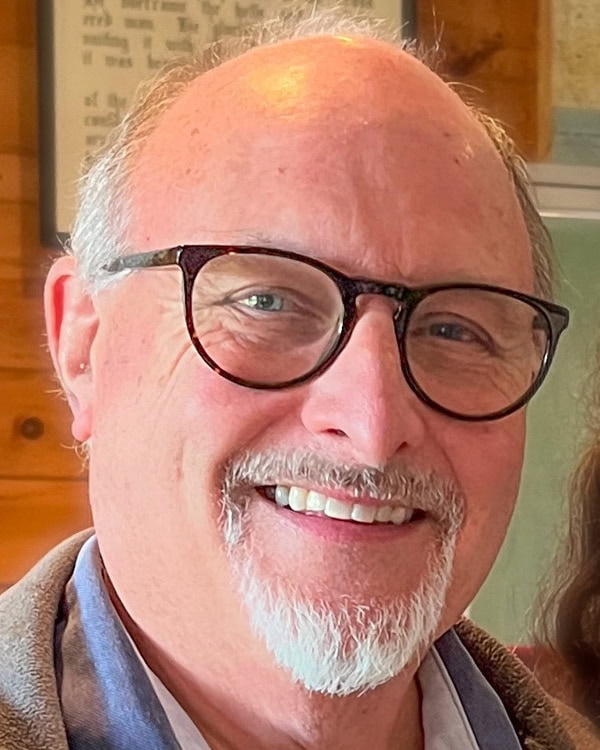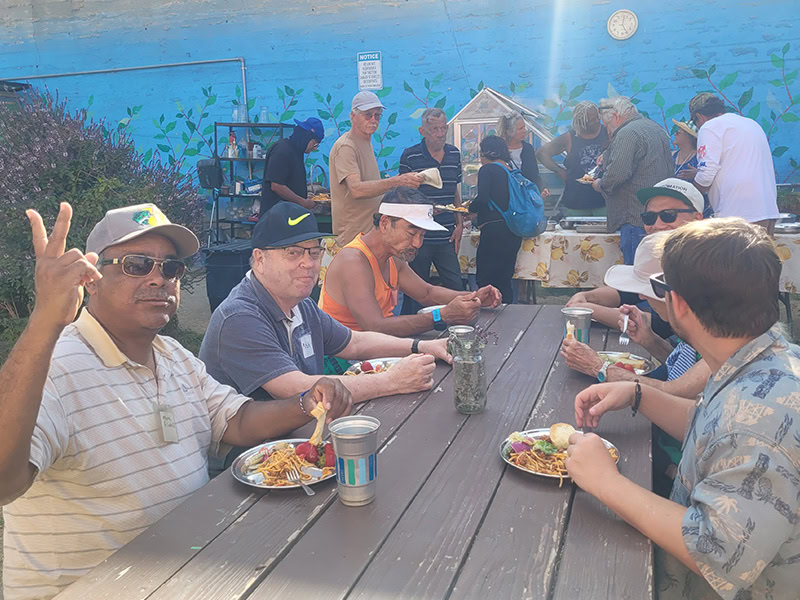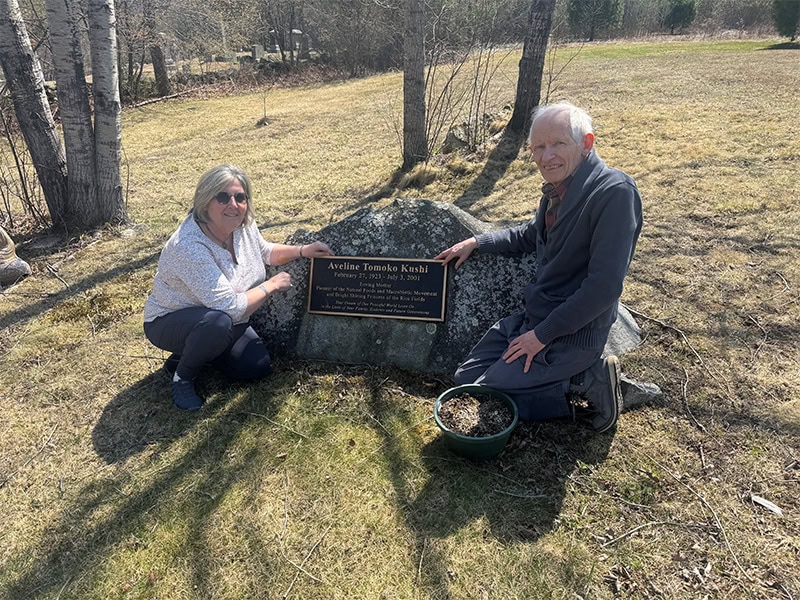By Jim Lawrence
Regularly meditating upon a classic text, prayer, or hymn enacts a time-honored practice used in many faiths that I have enjoyed for many years on dog walks. Last year I became curious about the spiritual sense of the 23rd Psalm and so ventured to see what Swedenborg wrote about its inner meaning in his study notebook on the psalms that wasn’t published for more than a century after his death carrying the English title Prophets and Psalms: Summaries of the Internal Sense.
He has almost nothing to say about Psalm 23! Perplexed about that near void, I nevertheless began reciting it on dog walks, and after a few times the stray question came out of somewhere: maybe the 23rd psalm was not such an iconic psalm in his own time, which proved to be the case upon research. Devotional popularity of the 23rd Psalm is quite recent phenomenon and specifically a primarily American thing—and even more specifically, a Protestant American tradition.

while studying archaeology.
There’s a backstory to this, and Swedenborg can be spied on the edges of it in William Holladay’s The Psalms through Three Thousand Years: Prayerbook of a Cloud of Witnesses, which is a history of how the psalms have been used devotionally and spiritually over three millennia. He dug out the story for how the 23rd Psalm journeyed from obscurity to immense popularity in American spirituality between 1860 and 1880. It all got going with an 1858 book by Henry Ward Beecher, at that time the most famous preacher in the country and Abraham Lincoln’s favorite clergyperson to use for special occasions. In spiritual classic Life Thoughts, Beecher shouts out this praise:
The 23rd Psalm is the nightingale of the psalms. It is small, of a homely feather, singing shyly out of obscurity; but, oh! … It has charmed more griefs to rest than all the philosophy of the world. It has remanded to their dungeon more felon thoughts, more black doubts, more thieving sorrows than there are sands on the seashore. It has comforted the noble host of the poor. It has sung courage to the army of the disappointed. It has poured balm and consolation into the heart of the sick, of captives in dungeons, of widows in their pinching griefs, of orphans in their loneliness. Dying soldiers have died easier as it was read to them; ghastly hospitals have been illuminated; it has visited the prisoner and broken his chains. It has made the dying Christian slave freer than his master. It will go singing to your children and my children, and to their children, through all the generations of time; nor will it fold its wings till the last pilgrim is safe, and time ended; and then it shall fly back to the bosom of God, whence it issued, and sound on, mingled with all those sounds of celestial joy which make heaven musical forever.
After Beecher’s book, Holladay details the exploding popularity of this biblical nightingale in numerous denominations, but importantly always conveyed in King James English, a translation used only by Protestants. If you know the 23rd Psalm by heart, you know it in King James English. Holladay recounts that during some decades of the twentieth century many American schools required a recitation every day of the 23rd Psalm as a ritual like the Pledge of Allegiance and how Catholic students had to be taught it while all the Protestant kids knew it by heart.
Beecher also knew a great many Swedenborgians, and he had a positive take on their approach. During those fractured nineteenth-century decades when Protestant schisms were occurring almost weekly, he once answered a question on his view of the various sectarian movements by saying, “I am an Episcopalian, I am a Presbyterian too; and I am a Methodist, and a Baptist, and a Swedenborgian. I am everything that has any good in it.” Beecher was in fact a Congregationalist.
In biblical lore, King David is the author of all the Psalms, but most scholars agree that this is simply not so. Likely, only a small number of the psalms came off the pen of the famous King of ancient Israel. The 23rd Psalm according to Holladay, however, must be put on that short list because only David’s personal story adequately explains the weird scene shift from verse 4 to verse 5. The first four verses unfold in a pastoral setting with a shepherd herding sheep, but suddenly you’re at a banquet feast in verse 5! How does that happen? Perhaps because the author was once a shepherd boy who became a king overseeing palace celebrations.
Bill Holladay taught at Andover Newton Theological School from 1970–1996. The Swedenborg School of Religion and Andover Newton maintained an inter-seminary plan, and numerous Swedenborgian ministers studied with Holladay.
A Swedenborgian Meditation Reflection on Psalm 23
Given this psalm’s deep journey into the psyche of modern Americans, I decided to put the psalm into its inner sense as a basis for my meditation on it while walking the dog. Here is the psalm in the King James version followed first by a thumbnail of key correspondences and then by an application of those correspondences into the unfolding verses of Psalm 23.
Psalm 23
(King James Version, 1611)
1 The Lord is my shepherd; I shall not want.
2 He maketh me to lie down in green pastures: he leadeth me beside the still waters.
3 He restoreth my soul: he leadeth me in the paths of righteousness for his name’s sake.
4 Yea, though I walk through the valley of the shadow of death, I will fear no evil: for thou art with me; thy rod and thy staff they comfort me.
5 Thou preparest a table before me in the presence of mine enemies: thou anointest my head with oil; my cup runneth over.
6 Surely goodness and mercy shall follow me all the days of my life: and I will dwell in the house of the Lord forever.
14 Key Swedenborgian Correspondences in 23rd Psalm:
Shepherd ◊ One who leads and teaches separating higher knowledges from distortions
Pastures ◊ The knowledges that understand the goodness of truths nourishing spiritual life
Green ◊ Living from truths
Waters ◊ Knowledges of good and truth
Stillness ◊ Tranquility of mind emerging from a time of temptation
Paths ◊ Guidelines of truth; living through the guidance of spiritual knowledge leads to heaven
Valley ◊ An obscure understanding by which truths do not appear in their own light
Rod and Staff ◊ Power of divine truth: staff (walking stick) for upholding, rod for correcting. Shepherds use the same instrument for both purposes—a fitting description of divine truth, as well.
Table ◊ Receptacle for celestial things which are of the good of love and of faith with a resulting bliss and happiness
Enemies ◊ Falsities and evils (AC 2851, 1737, 9174.4); the tendency of selfhood to take the reins and turn away from the divine (see DP 211).
Anointing ◊ Reception of the good of truth
Head ◊ Realm of understanding
Oil ◊ Holy good or the good of love
Cup ◊ Spiritual Truth (one biblical example of cup is communion wine in communion, which means divine truth)
One whom I trust leads me. When I’m sure about that, all seems right and safely under control. This One leads by teaching about higher knowledge and by distinguishing such knowledge from inevitable distortions. This One helps me to understand how to live in such a Way that my inner spiritual life may be frequently nourished and empowered. The path to such joyful states is quite simple: I must live out the best truth I can discern at every point with all my heart and mind and soul. When I’m truly trusting in this guidance, I often experience tranquility no matter what is going on, and I marvel at the love and wisdom that suffuses me.
Increasingly, however, I have come to realize that the truth I think I have understood needs to be tested to strengthen it and make it more real. This aspect of testing, of continually feeling the edges of my ability, often creates some feeling of separation from the One who leads me. Sometimes I vacillate on whether I actually know anything about the Way! Yet, what is also increasingly clear is that truth tested eventually makes it tougher, better known, and more effective. These strengthening truths uphold me better and better, very often correcting me from veering off the path.
As I’ve become stronger, my sight has become more perceptive, and I better comprehend the countervailing forces always interacting with me that are different from the essence of the One I trust more and more. These other forces—enemies, I call them—try to pull me toward all kinds of falsifications about what is true and about what to love and “honor.” Nevertheless, the One who leads me unfailingly offers me the better alternative every single time that these lower forces rear up. When I turn to the One whom I have learned to trust, there is an immediate re-illumination in my perception of the Way. Consequently, an answering surge of love grows in my felt experience of being in the right relation to the force of life. It is like having a banquet feast all laid out for me right in the middle of my toughest torments. What a blessing!
I have come to trust that I am on the path. Increasingly I do know now how to stay in the Way, and increasingly I feel assured that I’m approaching a point of always abiding in divine life with the One who never stops leading me into the most profound experiences of seeing truth and of loving others.
Read the full issue of the June 2024 Messenger

Meet Jim Lawrence
Rev. Dr. Jim Lawrence is the president of the Swedenborgian Church of North America. He was the dean of the Center for Swedenborgian Studies for 21 years prior to being elected President in 2022.



